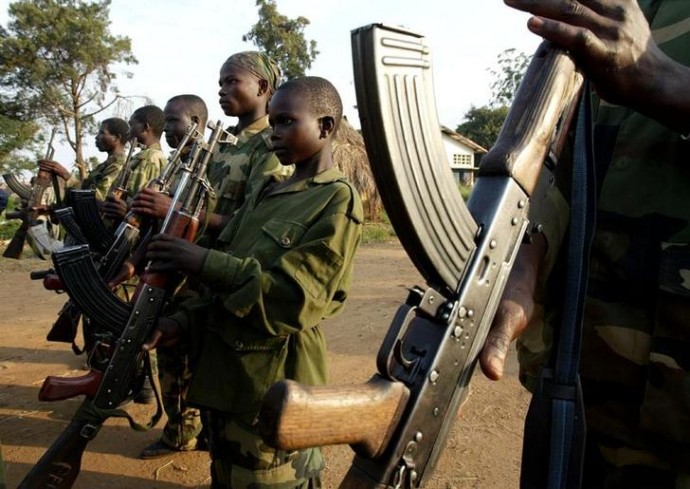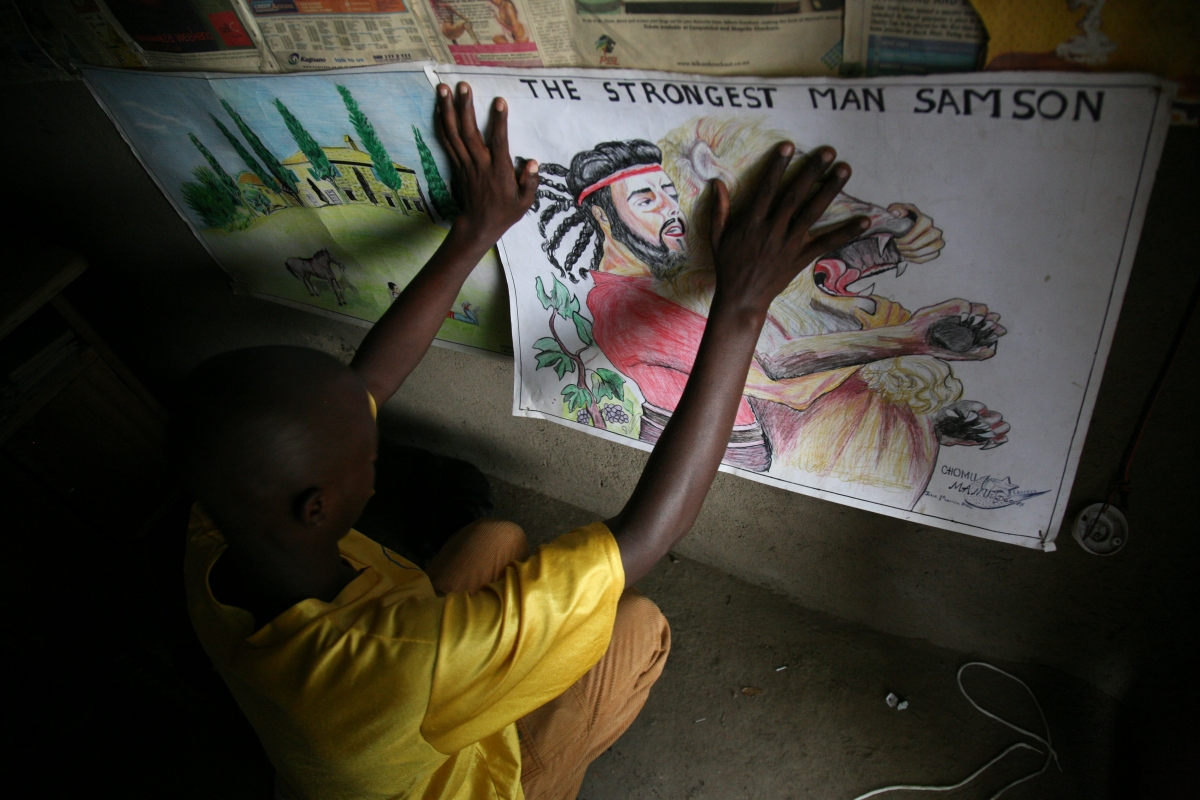DRC child soldiers: Children grow up 'more comfortable with weapons than with books

Children in DRC are forcefully recruited or decide to join
militant groups to receive a financial income and protection
Millions of people have been killed during conflicts in the Democratic Republic of Congo (DRC) since 1996 with the eruption of the First Congo war, ended in 1998, and the Second Congo war, also known as the Great War of Africa, that erupted in 1998 and officially terminated in 2003.
However, hostilities and frequent attacks on civilians, especially in the northeast, have continued since and there are at least 50 different armed groups currently operating along DRC's eastern and western borders. As a result, children − who are often displaced and unaccompanied − are likely to become part of these groups, the majority of which have been accused of committing war crimes.
More on militant groups in DRC
- Who are the Enyelle and Independent Movement of Liberation and Allies (MILIA)?
- Who are the armed groups killing for land, resources, and ethnicity?
- Who are the Armed forces of the DRC (FARDC)?
- Who are the Patriotic Forces for the Liberation of Congo (FPLC)?
- Who are the Lord's Resistance Army (LRA)?
"Children who are unaccompanied will sometimes join an armed group to protect themselves and find security," he said. "Some join for financial reasons, and they might join not necessarily as front-line soldiers but, for example, to work in the kitchen or with food supplies."
Eldebo went on to explain that children might join groups, or are more likely to be recruited, because they feel they do not have other possibilities. "They might do that because there is no real other option," Eldebo said. "Joining a group might seem a normal thing to do to earn a living
Former child soldiers need to experience normality
Former child soldiers might be affected by stigma and discrimination from the rest of the community, which might not accept them back. Former child soldiers in DRC can face stigma, depending on the role they had while they were part of a group, according to Eldebo.
He said: "In some places, you have very brutal groups, such as the Lord's Resistance Army (LRA), which make children commit terrible atrocities to make sure they are not able to go back to their communities after that. In these situations, both from the perspective of the community and the children, integration might be difficult.
"In other cases, children who were part of groups that, to a certain extent, were respected by the community might not experience the same level of stigma," he continued.
Former child soldier speaks

When interviewed by World Vision UK, Chirak warned of the dangers that emerge when children are involved in armed conflicts. He said: "When children come out of the army, they are corrupted and change their thinking. The adults teach them to use cannabis, they become persuaded to become like adults." Of his personal experience, he said: "I feel it − it follows me. I feel much older than others."
Chirak now lives in Beni, 250km from Goma, with his family. He is the Second Chair Person in the Children's Parliament, composed of children who aim to promote human rights and protect children from violence and abuses.
World Vision UK runs rehabilitation programmes for former child soldiers in DRC and other countries across the world. However, the NGO believes that the international community should step up efforts to prevent child soldier recruitment and create long-term programmes to successfully help former child soldiers re-integrate into society.
"Children need to experience normality," Eldebo said. "In many places, such as DRC, Central African Republic and South Sudan, children are growing up feeling more comfortable with weapons than with books.
"Child soldier recruitment is certainly a problem that is not sufficiently addressed," he added. "Short-term interventions have to be substituted with long-term solutions to successfully heal children's traumas and build stable countries and healthy communities."
By Ludovica Iaccino
International Business Times
No comments:
Post a Comment